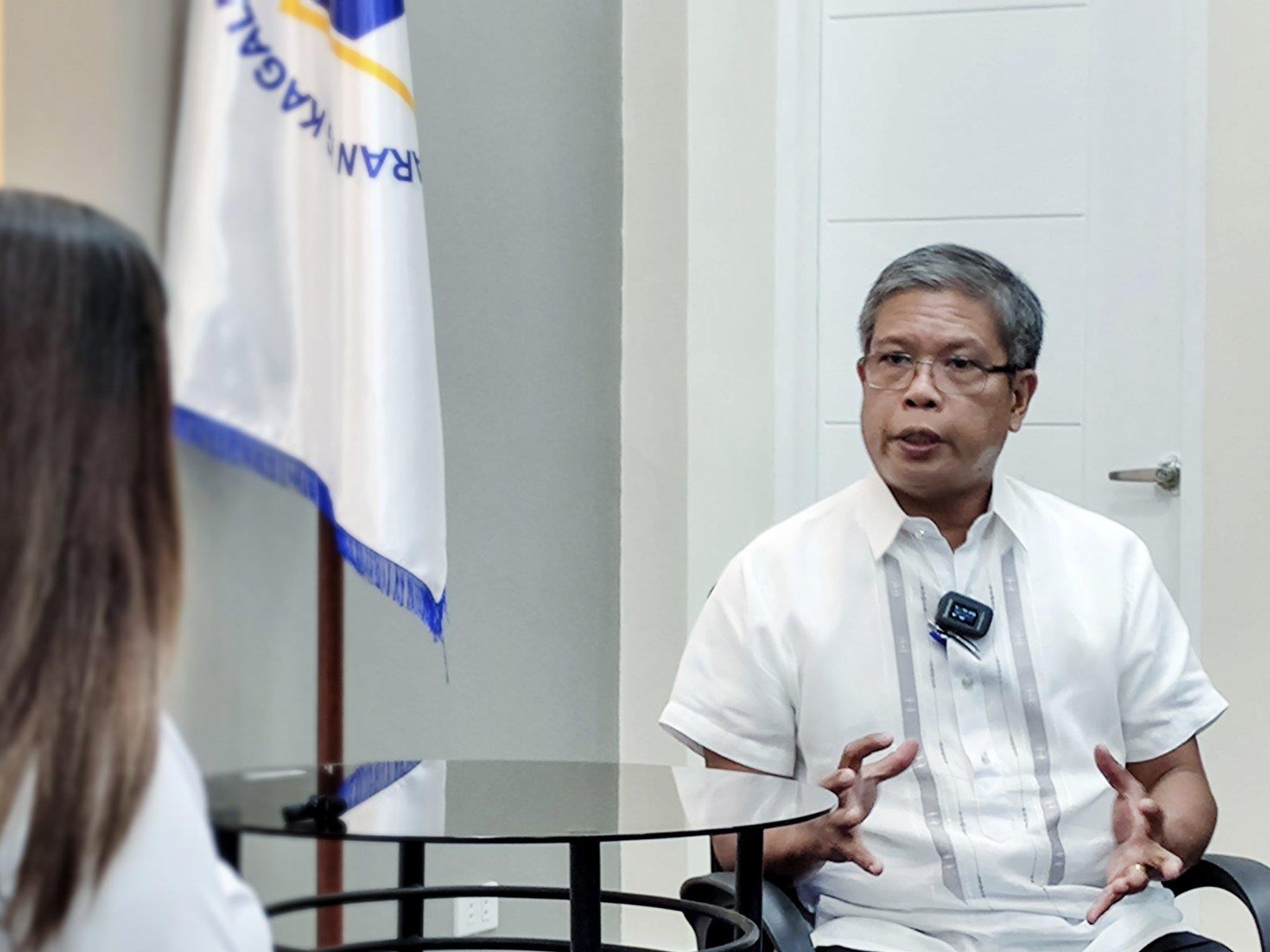


 THE NEXUS OF POVERTY AND INSURGENCY: Having previously championed labor rights and often collaborating with different communities influenced by communism, DSWD’s Undersecretary Alan A. Tanjusay acknowledges that beyond ideological differences, the primary motivator behind individuals turning to insurgency is poverty. The lack of opportunities makes them susceptible to the enticements of communist terrorist groups.
THE NEXUS OF POVERTY AND INSURGENCY: Having previously championed labor rights and often collaborating with different communities influenced by communism, DSWD’s Undersecretary Alan A. Tanjusay acknowledges that beyond ideological differences, the primary motivator behind individuals turning to insurgency is poverty. The lack of opportunities makes them susceptible to the enticements of communist terrorist groups.
Former labor leader and now-Undersecretary of Inclusive-Sustainable Peace and Special Concerns (ISPSC) Alan A. Tanjusay of the Department of Social Welfare and Development (DSWD) encouraged former rebels (FRs) and former violent extremists (FVEs) to think beyond the immediate assistance they received under the Enhanced Comprehensive Local Integration Program (E-CLIP) to fully sustain their transformation, stressing that they should take the initiative and consider other programs available to sustain their reintegration developments to mainstream society.
“Kung sila ay business-minded, sila ay mayroong entrepreneurial drive sa sarili nila para pagandahin ang mga produktong na binebenta o ginagawa nila, mas matagal ang epekto n’on [Sustainable Livelihood Program (SLP)],” said USec. Tanjusay during his interview for the program “Balik-Loob sa Pagbabago” aired over DWDD (1134kHz) AFP Radio. “Matutulungan niya yung sarili niya, ang kaniyang mga kapatid at ibang kamag-anak. Ganoon ang impact ng SLP,” he added.
USec. Tanjusay shared as an example of a people’s organization in Aklan, once affiliated with the communist terrorist group but later engaged in negotiations and peace agreements, which transformed its members into successful business owners. These individuals now run a range of enterprises, from a kambingan restaurant to a vendo-gasoline station and coconut oil processing factory.
Recently, the DSWD extended assistance to approximately 700 former Abu Sayyaf Group members, with some of them graduating and becoming qualified beneficiaries of SLP in Jolo, Sulu.
USec. Tanjusay emphasized that this success was a collective effort between the government and the FRs and FVEs themselves playing a pivotal role in aspiring for a better future.
“Hindi mo matutulungan ang mga kababayan nating mahihirap kung wala silang self-realization na magpursigi, magtiyaga. Ang tunay na pagbabago ay i-empower mo ang isang indibidwal at i-develop mo ang kaniyang potensyal,” he said. Furthermore, USec. Tanjusay underscored that the development and growth of FRs would come naturally as long as they're well guided.
As one of the lead agencies of the Task Force Balik-Loob, the DSWD is instrumental in reintegrating FRs and FVEs into the mainstream society. The department offers comprehensive support to these individuals, encompassing debriefing, psychosocial assistance, transportation, food provisions, and social welfare programs such as the Sustainable Livelihood Program (SLP) and Pantawid Pamilyang Pilipino Program (4Ps). Eligible FRs receive Livelihood Settlement Grant (LSG) of up to P20,000 through SLP, which intends to foster their economic independence.
DSWD's assistance also extends to skills development, education, livelihood opportunities, employment support, and financial aid, including the Cash for Work program, which provides temporary employment opportunities. In addition, the department implements moral, religious, social, cultural, identity, and psychosocial interventions, with a strong emphasis on deradicalization programs, promoting reintegration and healing.
# # #